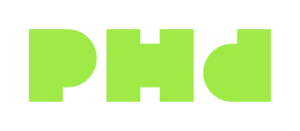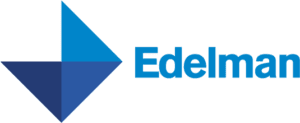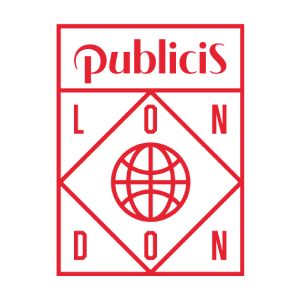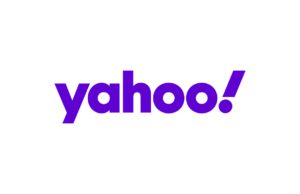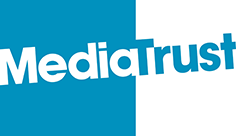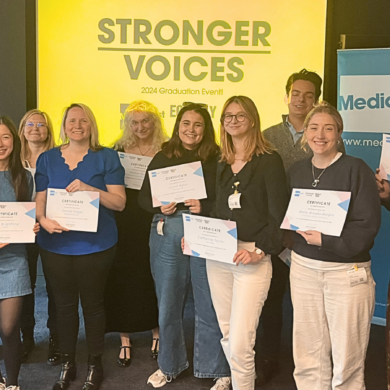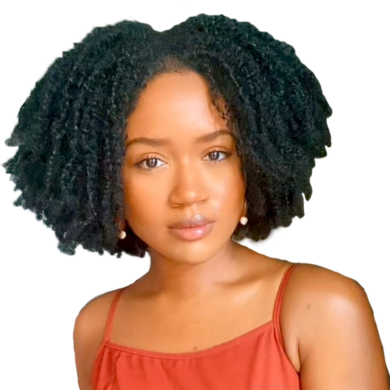Stronger Voices
Empowering London’s equality organisations with free strategic communications training

Welcome to Stronger Voices: empowering UK equality organisations to amplify their voice and make change
What is Stronger Voices?
Stronger Voices is a transformative, six-month strategic communications training programme specifically designed for London-based third-sector organisations whose primary focus is on equalities issues. This programme aims to empower you, the experts in your field, with the skills, knowledge and confidence to harness your communications to drive meaningful social change.
If you’re an organisation advocating for systemic change and addressing structural inequality in London, this programme is for you. We will equip you with the tools and techniques to confidently tell compelling stories that shift mindsets, garner public support and inspire hope.
We are looking for 20 London-based equalities organisations to take part in this free six-month strategic communications training programme. The programme runs from November 2025 – May 2026.
You’ll learn how to navigate the media landscape to spread values-led messages that counter harmful and divisive narratives whilst centering the voices and needs of your communities.
With a stronger voice, equalities organisations like yours can effectively participate in media and public discourse on important social justice issues. In turn, your voice will inspire visions of a fairer future, rooted in justice for the communities you serve.
Prior to the Stronger Voices programme, we had both little knowledge and confidence when it came to comms. However, now, the range of topics discussed and skills taught, we now have a wealth of knowledge and can now properly implement this into our comms strategy.
Tilly Robinson, London Friend
How is the programme run?
Stronger Voices, now in its eighth year, is funded by City Bridge Foundation and has a proven track record of working closely with the equalities sector to develop the programme. We partner with an Advisory Group of equalities experts, campaigners, and media organisations to ensure this programme is relevant and tailored to your needs.
The programme covers key elements of strategic communications. It will support you to understand the vital role that communications play in progressive social change, how change happens, and introduce different approaches to strengthening your organisation’s voice in the current landscape whilst keeping your values at the core of your comms.
Applications for Stronger Voices have closed.
What does the programme cover?
The programme is split into the following four core strands:
Strategic communications
Delve into the world of strategic communications with workshops on topics like:
- Movement ecology
- Values-led communications
- Framing equalities
- Lived experience storytelling
Media engagement
Learn to navigate media opportunities with workshops on:
- Getting your story into the media
- Media interview training
- Writing the perfect pitch
Putting learning into practice
Consolidate your newfound knowledge and skills at our:
- Speed pitching with journalists event
- Challenge Day event with media industry volunteers
- Building your comms strategy workshop
Peer learning and collaboration
Collaborate directly with community and third sector peers by:
- Attending in person peer networking sessions to build connections and recap programme learnings in a collaborative space
- Connecting with a network of passionate communications professionals working to address inequality
- Exploring opportunities for joined up messaging and collaborative campaign strategies.
We feel much more confident in our framing of key messages, how to engage with journalists and how to use social media, it's truly been an amazing experience!
Karen Torres, IRMO
Is Stronger Voices is right for me?
To apply to the programme as the lead applicant, you must be responsible for the day-to-day communications at your organisation, even if you have other non-communications-related responsibilities.
We understand that your time is precious and resources are limited, which is why this intensive six-month course is completely free. We require one lead contact who attends the entire programme; however, the programme is designed to be flexible, allowing different individuals from your organisation to attend different sessions along with you.
What’s the time commitment?
The programme will require a time commitment of up to 12 hours per month. The number of hours you commit will fluctuate across the programme based on what activity is taking place, but will not exceed 12 hours per month. This includes workshops, networking sessions, framing surgeries, and preparation time outside of sessions for pitches and challenge briefs.
Who can apply?
We shortlist applications using two types of criteria: essential criteria and desirable criteria.
You must meet all the essential criteria requirements in order to be eligible for the programme. Meeting all the desirable criteria is not required but will give you a stronger chance of scoring highly during our shortlisting process.
To be eligible, your organisation must meet the following essential criteria. Priority will be given to organisations that meet one or more of the desirable criteria.
Essential criteria
- Is a social justice organisation with an equalities purpose (i.e. supports beneficiaries from one or more of the nine protected characteristics detailed in the Equality Act 2010)
- Is working in one of the 33 London boroughs
- Can provide at least two years of financial records
- Is a small to medium-sized organisation with a turnover of £2 million or less
Desirable criteria
- Organisations campaigning for systemic change and/or tackling structural inequality in their work for communities in London
- Organisations that want to raise their profile to influence public opinion and speak truth to power
- Organisations that work intersectionally across multiple equality strands
- Organisations that can demonstrate they are user-led and/or meaningfully centering the voices and lived experience of the communities they support
The programme has increased our confidence in campaigning and storytelling, so we'll more effectively be able to raise awareness and advocate for change in how people affected by conflict are treated both in the UK and internationally.
Kayleigh Swanson, Music Action International
How can I apply?
Please apply via our online application form. Applications close at 18:00 on Friday 26 September 2025.
At Media Trust, we strive to ensure that everyone can access our services. You can download a Word version of the form here. If you require additional support, please contact Olive at olivec@mediatrust.org.
Applicant pack
For more information before applying, visit our applicant pack. The pack includes further information, a programme timeline and key dates about the Stronger Voices programme.
To benefit fully, you should be able to dedicate the necessary time to attend as many sessions as possible.
Join a Q&A event
Got questions about the programme? We’re hosting two Q&A sessions where we’ll be covering programme eligibility, content, and the application process. Sign up to one of the dates below:
The programme’s focus on fostering a supportive cohort environment, where participants could share experiences and strategies, created a collaborative learning space that extended beyond the formal sessions
Dan Lawes, My Life My Say
Programme timeline
- Applications open: Tuesday 26 August 2025
- Applications close: 18:00 on Friday 26 September 2025
- Programme places offered to selected organisations: By Tuesday 28 October 2025
- Programme begins: Tuesday 4 November 2025
For further enquiries, please contact Olive, our Stronger Voices Senior Programme Manager, at olivec@mediatrust.org.
What impact has Stronger Voices had so far?
Former participants of the programme have experienced remarkable results, including press coverage in prestigious media outlets such as CNN, The Guardian, The Independent, Newsnight, and The Times. Completing the programme consistently leads to increased confidence, knowledge, and skills, as well as enhanced collaboration and partnerships with organisations across the sector.
Success stories
Frequently Asked Questions (FAQs)
What is an organisation with an intersectional equalities purpose?
An organisation with an intersectional equalities purpose is one that:
- Has the purpose of addressing and/or eradicating inequalities faced by the communities it serves. This could be an organisation with a primary focus on equality, such as an anti-racist organisation, or an organisation that works with, advocates for, and prioritises marginalised communities through its services or campaigns.
- Works across multiple equalities strands and/or supports communities from one or more of the nine protected characteristics detailed in the Equality Act 2010, such as race, gender, disability, or age. We understand that the Equality Act does not cover all possible inequalities, and there are disparities in communities that aren’t listed in the Act, such as class.
- Recognises how an individual’s multiple identities can intersect and create layers of disadvantage. The organisation should be able to demonstrate how its work encompasses and addresses this intersectionality.
What is considered a small to medium-sized organisation?
At the Media Trust, we consider the size of an organisation based on the following annual turnover:
- Micro organisation (with less than £0.5 million turnover)
- Small organisation (with £0.5 million – £1 million turnover)
- Medium organisation (with £1 million – £2 million turnover)
If you are a micro-organisation, we still encourage you to apply. However, we may ask you additional questions to demonstrate the financial health and future sustainability of your organisation.
What if my organisation's turnover is slightly higher or lower than the desired threshold?
This won’t necessarily exclude you from consideration. The application form will provide an opportunity for you to address this, and we will consider each case individually. However, please note that we cannot accept organisations that greatly exceed the £2 million turnover threshold.
Can I apply to the programme if I'm not a registered charity?
Yes. You do not have to be a registered charity to apply, and we encourage all eligible organisations to submit their applications. For example, your organisation could be a community interest company or an unincorporated association. However, we do require a minimum standard of governance to demonstrate the viability and longevity of the organisation. This may include providing two years of management accounts or, if more relevant, a constitution.
What is the difference between the essential criteria and desirable criteria for the programme?
You can apply to the programme if your organisation meets the following essential criteria:
- An organisation with an intersectional equalities purpose
- Working in one of the 33 London boroughs
- A small to medium-sized organisation with a turnover of £2 million or less
The desirable criteria are additional factors that we consider when selecting organisations for the programme. The more desirable criteria your organisation can demonstrate in the application, the higher your chances of securing a place in this year’s Stronger Voices programme.
What do you mean by structural inequality and systemic change?
By structural inequality, we refer to barriers, discrimination, and unfairness that are built into institutions and systems within society, such as housing, education, and employment. These inequalities disproportionately affect marginalised communities.
Organisations working on systemic change are more likely to create positive, long-term impact by addressing the root causes of inequality within the systems and institutions they engage with. We prioritise organisations that want to strengthen their voices to challenge harmful narratives, influence public opinion and speak truth to power.
We know systemic change takes time, is hard work, and can be done on a national, regional or hyper-local level. This can cover all types of work, from: reforming the criminal justice system, campaigning for your location authority to change or provide a service, to creating community led initiative. If you are unsure that your organisation fits these criteria, email Olive, the Stronger Voices programme manager at olivec@mediatrust.org.
What does being 'user-led' mean, and how can we demonstrate this?
Being ‘user-led’ means having the individuals or communities your organisation serves in positions of leadership, influence, and power within your organisation. For example, if you are a user-led disabled people’s organisation, the majority of your team will be composed of disabled individuals. We understand that being user-led can vary across different organisations, and the application form will provide an opportunity for you to clarify your approach. There are various ways to demonstrate being user-led, such as stating the percentage of your team composed of people from the communities your organisation aims to serve or highlighting user groups from which you draw expertise, such as youth-led advisory groups.
I believe the improved communications skills I have gained from the programme will help us to raise awareness of the harms being done to women and girls with multiple unmet needs.
Cynthia Otote, Agenda Alliance
With thanks to our funder:
Stronger Voices is funded by the City of London Corporation’s charitable funder, City Bridge Foundation.
Our Corporate Partners
We enjoy outstanding support from the media industry. Our partners include:



